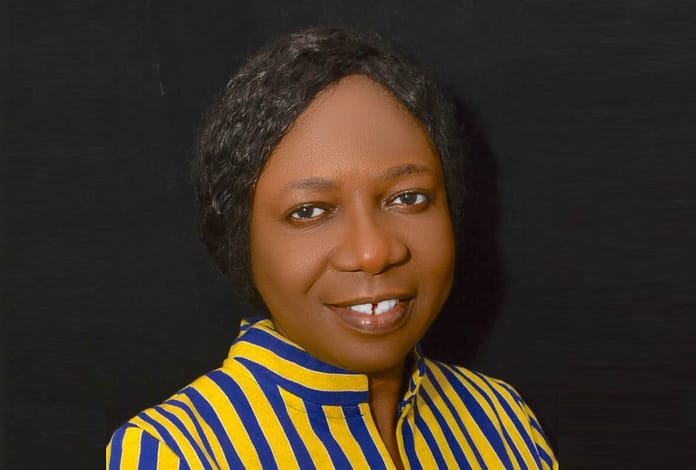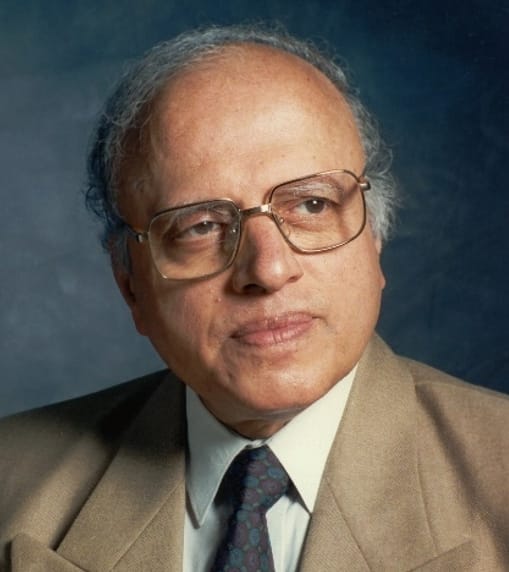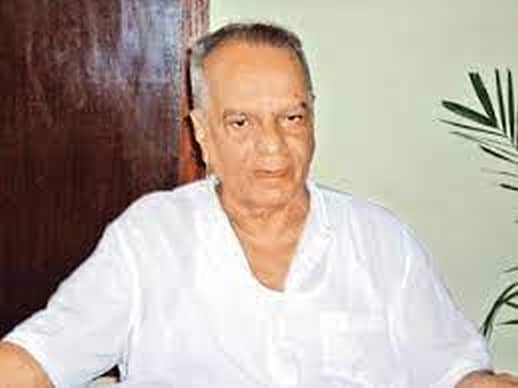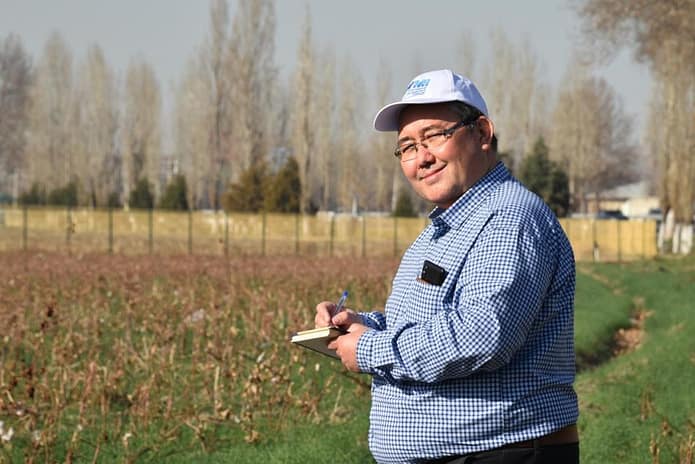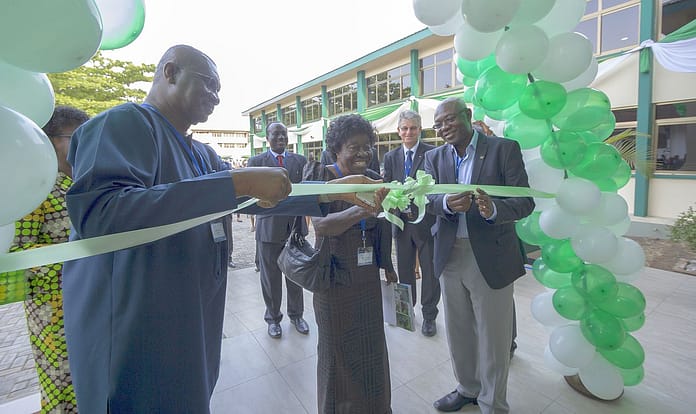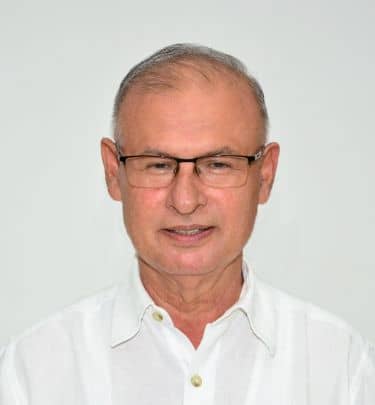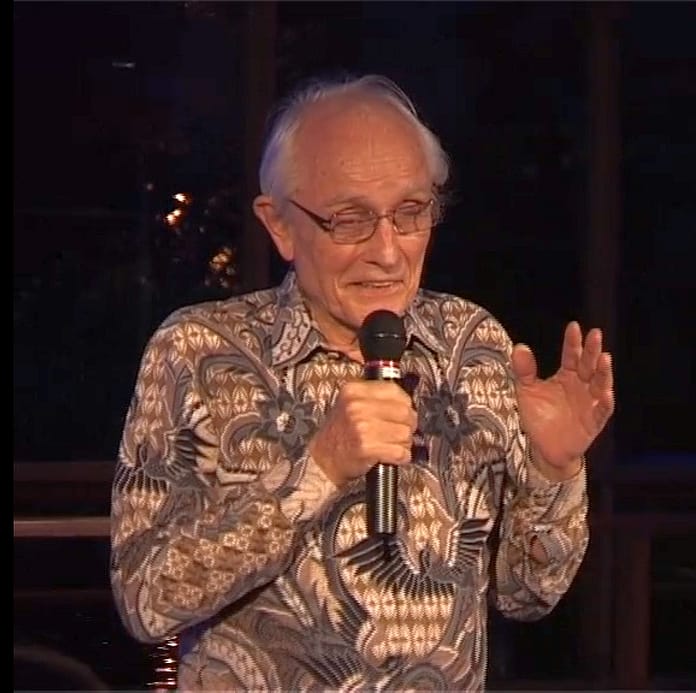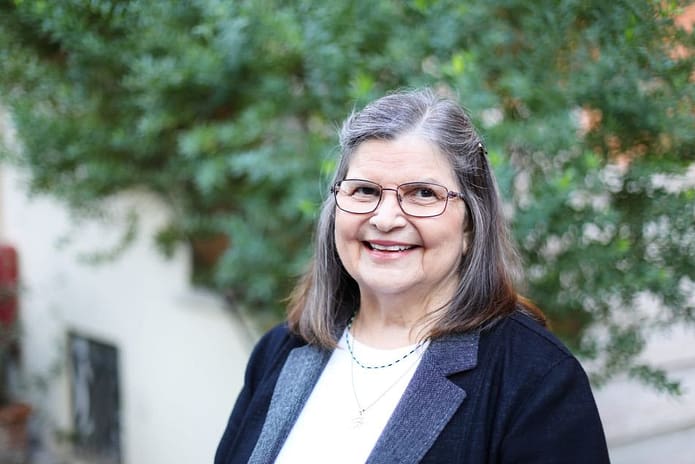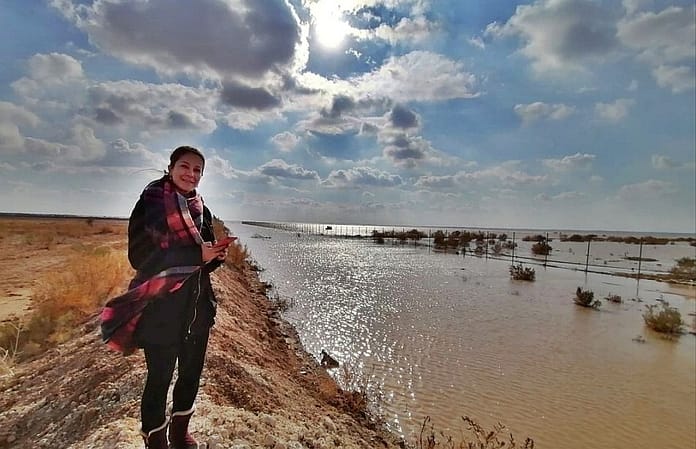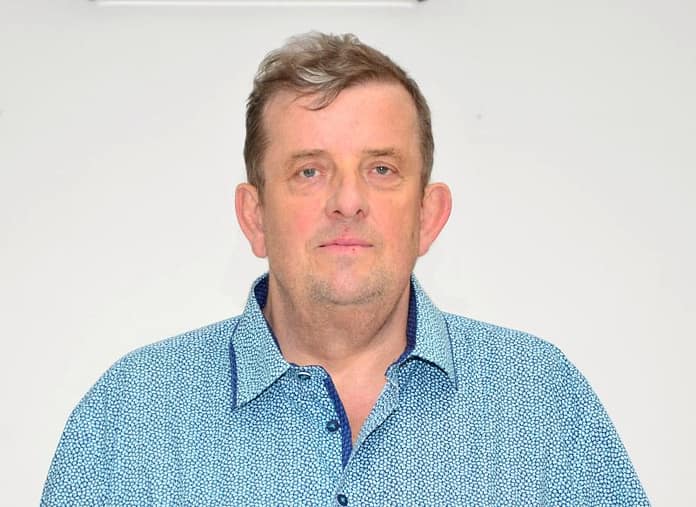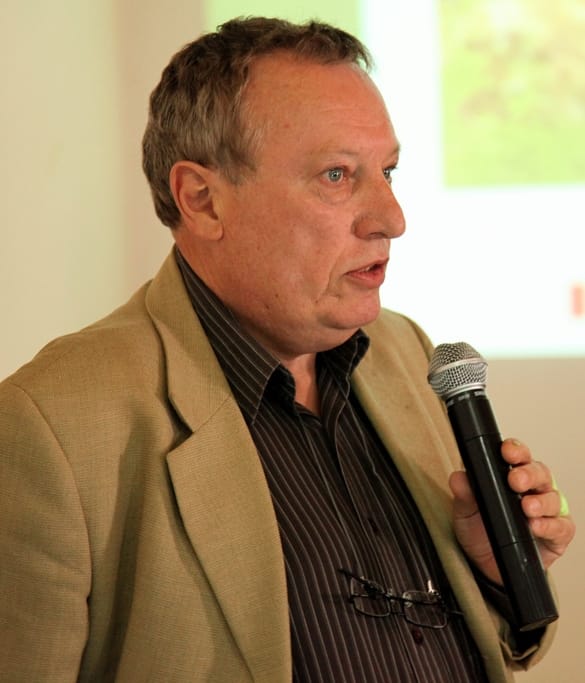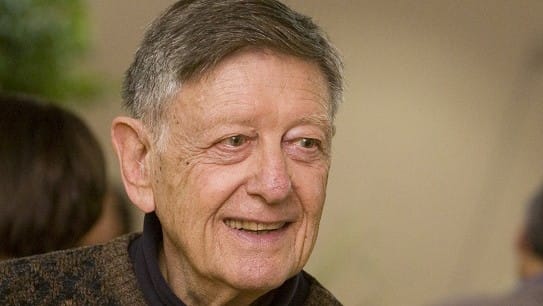
This article was originally published on Cornell Chronicle.
Gilbert Levine ’48, Ph.D. ’52, whose 68 years of service to Cornell were devoted to fostering multidisciplinary and international collaboration, died Feb. 5 in Fitchburg, Wisconsin. A professor emeritus of biological and environmental engineering in the College of Agriculture and Life Sciences (CALS), Levine was 96.
Levine’s lengthy and impactful career included helping establish what is now the International Water Management Institute (IWMI) and serving for six years as interim director of Cornell’s Mario Einaudi Center for International Studies. He is remembered by colleagues and former students as humble, caring and always eager to learn.
“Gil was first and foremost a teacher who took his mentoring role very seriously and selflessly. In the field of irrigation management internationally, he had the broadest following of students becoming colleagues and protegés of anyone in his generation,” said Norman Uphoff, professor emeritus of government and international agriculture in the College of Arts and Sciences. “Gil’s published record doesn’t do justice to his influence both on the profession academically and on the real world; it was remarkable.”
After completing his B.S. and Ph.D. at Cornell, Levine joined the faculty in 1952. He retired in 1983, then went to work for the Ford Foundation, which funded and helped establish IWMI along with the government of Sri Lanka. Levine lived in New Delhi for several years, helping to establish IWMI offices throughout Asia. In 1988, he was persuaded to return to Cornell as interim director of the Einaudi Center, a role he held four times over two decades. He served as the center’s Fulbright program adviser until his second retirement in 2018, at 90.
In one of many examples of Levine’s service on behalf of low-income farmers, Levine, Uphoff, Randy Barker, professor emeritus of agricultural economics (CALS), and Walter Coward, former professor of rural sociology (CALS), collaborated on a U.S. Agency for International Development project in the 1980s to improve performance of the Gal Oya irrigation system in southeastern Sri Lanka. Disputes about limited irrigation water are common under the best of circumstances, but tensions in that region were even higher because the Gal Oya river basin served both Sinhalese and Tamil farms; conflict between these communities led to a decades-long civil war.
The Cornell researchers established collaborative relationships with Sri Lankan government officials, engineers and farmers. Together, they rehabilitated the deteriorated irrigation system and strengthened farmers’ organizations, despite armed conflict between Sinhalese and Tamil forces elsewhere in the country. The infrastructure and management improvements increased rice production fourfold, according to a post-project evaluation by IWMI. Cooperative governance of the system has continued to hold for 40 years, even through droughts and internal strife, and the Gal Oya innovations were made national policy in 1988, Uphoff said.
Levine brought the same collaborative thinking to his teaching and mentoring, said Tammo Steenhuis, professor of biological and environmental engineering (CALS). Steenhuis was hired to fill Levine’s position in 1977, including co-teaching an influential multidisciplinary course that Levine helped establish. The seminar course on socio-technical aspects of irrigation brought together social scientists, engineers, economists and others in a format that addressed real-world, technical problems. The course design, unusual at the time, is now favored in many disciplines.
“One of his biggest contributions to the university was going across departments and getting people to talk to each other rather than scream at each other,” Steenhuis said. “His understanding, as an engineer, that irrigation efficiency was a function of social issues as much as technical issues was very influential. He was far ahead of his time and there are many others who have followed in his footsteps, including me.”
When Levine helped found the International Irrigation Management Institute (now IWMI), he recruited Bob Yoder, Ph.D. ’86, his former advisee, to establish its headquarters in Nepal.
“Gil really was important in a lot of graduate students’ lives. Even if their only contact with him was through one course, he had such a big impact because of his kindness and willingness to help,” Yoder said. “In everything he did, his focus was on getting groups to work together to do things that none of them could do individually.”
Levine was born April 12, 1927, in New York City. He served in the U.S. military’s post-World War II occupation forces in Europe. His wife of 72 years, Ilma Stein Levine ’50, M.S. ’51, died one month after her husband, on March 11. The couple were significant supporters of the Ithaca Sciencenter, which Stein Levine co-founded. Levine was predeceased by his son, David. He is survived by daughters Susan Levine ’78, DVM ’81, Ph.D. ’91, and Ruth Levine ’81; grandchildren; great-grandchildren; and extended family.
Krisy Gashler is a writer for the College of Agriculture and Life Sciences.


